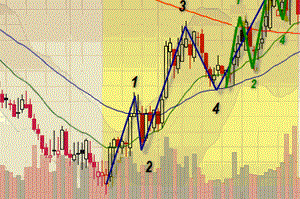Core Plus Fund Volume Indicators Chaikin AD Oscillator
| ACCNX Fund | USD 9.08 0.01 0.11% |
| Symbol |
The function did not generate any output. Please change time horizon or modify your input parameters. The output start index for this execution was nine with a total number of output elements of fifty-two. The Accumulation/Distribution Oscillator was developed by Marc Chaikin. It is a moving average oscillator based on the Accumulation/Distribution indicator. The Chaikin Oscillator is created by subtracting Core Plus Fund 10-period exponential moving average of the Accumulation/Distribution Line from a 3-period exponential moving average of the Accumulation/Distribution Line.
Core Plus Technical Analysis Modules
Most technical analysis of Core Plus help investors determine whether a current trend will continue and, if not, when it will shift. We provide a combination of tools to recognize potential entry and exit points for Core from various momentum indicators to cycle indicators. When you analyze Core charts, please remember that the event formation may indicate an entry point for a short seller, and look at other indicators across different periods to confirm that a breakdown or reversion is likely to occur.| Cycle Indicators | ||
| Math Operators | ||
| Math Transform | ||
| Momentum Indicators | ||
| Overlap Studies | ||
| Pattern Recognition | ||
| Price Transform | ||
| Statistic Functions | ||
| Volatility Indicators | ||
| Volume Indicators |
About Core Plus Predictive Technical Analysis
Predictive technical analysis modules help investors to analyze different prices and returns patterns as well as diagnose historical swings to determine the real value of Core Plus Fund. We use our internally-developed statistical techniques to arrive at the intrinsic value of Core Plus Fund based on widely used predictive technical indicators. In general, we focus on analyzing Core Mutual Fund price patterns and their correlations with different microeconomic environment and drivers. We also apply predictive analytics to build Core Plus's daily price indicators and compare them against related drivers, such as volume indicators and various other types of predictive indicators. Using this methodology combined with a more conventional technical analysis and fundamental analysis, we attempt to find the most accurate representation of Core Plus's intrinsic value. In addition to deriving basic predictive indicators for Core Plus, we also check how macroeconomic factors affect Core Plus price patterns. Please read more on our technical analysis page or use our predictive modules below to complement your research.
Become your own money manager
As an individual investor, you need to find a reliable way to track all your investment portfolios' performance accurately. However, your requirements will often be based on how much of the process you decide to do yourself. In addition to allowing you full analytical transparency into your positions, our tools can tell you how much better you can do without increasing your risk or reducing expected return.Did you try this?
Run Volatility Analysis Now
Volatility AnalysisGet historical volatility and risk analysis based on latest market data |
| All Next | Launch Module |
Trending Themes
If you are a self-driven investor, you will appreciate our idea-generating investing themes. Our themes help you align your investments inspirations with your core values and are essential building blocks of your portfolios. A typical investing theme is an unweighted collection of up to 20 funds, stocks, ETFs, or cryptocurrencies that are programmatically selected from a pull of equities with common characteristics such as industry and growth potential, volatility, or market segment. | Impulse Invested over 100 shares | |
 | Hedge Favorites Invested few shares | |
 | Macroaxis Picks Invested few shares | |
 | Investor Favorites Invested few shares | |
 | Dividend Beast Invested over 50 shares | |
 | Automobiles and Trucks Invested over 300 shares | |
 | Business Services Invested few shares | |
 | Warren Buffett Holdings Invested few shares | |
 | Momentum Invested few shares | |
 | Chemicals Invested over 40 shares | |
 | Banking Invested over 30 shares | |
Other Information on Investing in Core Mutual Fund
Core Plus financial ratios help investors to determine whether Core Mutual Fund is cheap or expensive when compared to a particular measure, such as profits or enterprise value. In other words, they help investors to determine the cost of investment in Core with respect to the benefits of owning Core Plus security.
| Share Portfolio Track or share privately all of your investments from the convenience of any device | |
| Sync Your Broker Sync your existing holdings, watchlists, positions or portfolios from thousands of online brokerage services, banks, investment account aggregators and robo-advisors. | |
| Portfolio Analyzer Portfolio analysis module that provides access to portfolio diagnostics and optimization engine | |
| Positions Ratings Determine portfolio positions ratings based on digital equity recommendations. Macroaxis instant position ratings are based on combination of fundamental analysis and risk-adjusted market performance |